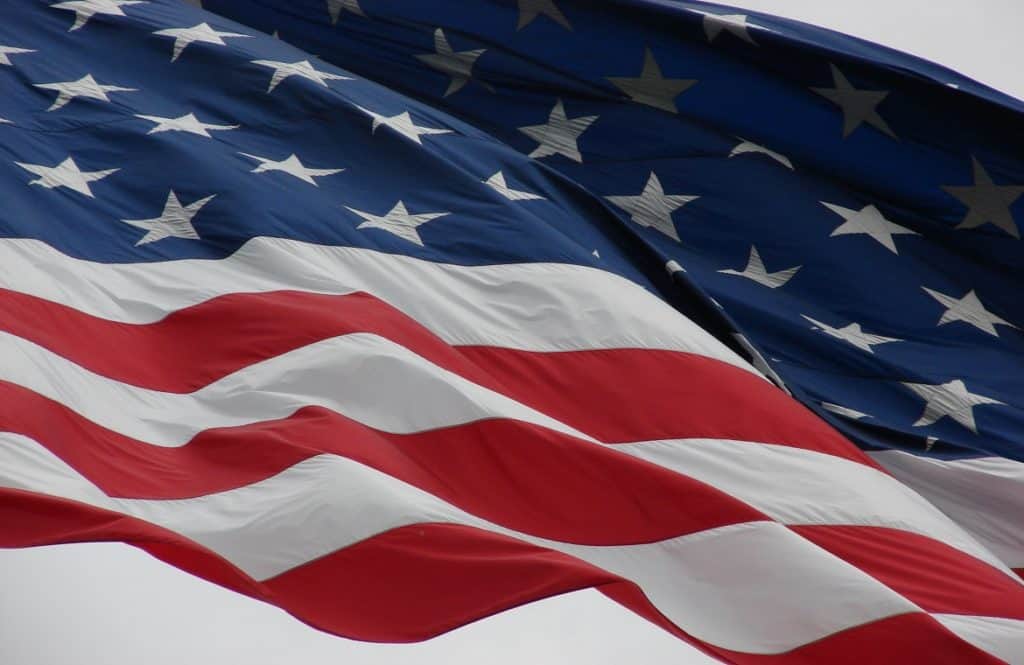By Rana Danish Nisar
In this anarchical as well as selfish world structure, states want more power aim to secure their national interests or goals. The securing of national interests can be considered as spinal cord of states. States national interests can be judged or fixed according to the changing climate of power Politics of this chaotic world.
-

Rana Danish Nisar With the aim to secure their national interests/goals, states design their National Security strategy. National Security is essence of States. As like other states, the United States of America, as still the superpower of the world, follows the national security strategy to protect the homeland. Interestingly, the United States National Security Strategy (NSS) has been released once a year since 1987, under the presidency of Ronald Reagan.
The NSS is regulated by the US department of defense under the defense reorganization act of 1986 (Public Law 99-433). With the intention to do communication with the executive branch’s national security vision, the report was sent to Congress, the legislative branch, from the office of President. The NSS is the appreciative report which include an in-depth but precise description of USA national interests, commitments, goals, policies, strategies along with the defense capabilities which are highly needed to deter the all heists as well as purely implantation of USA security plans.
Moving ahead, as the 46th President of the United States of America, Joseph Robinette Biden is now fully committed with his commitments and slogan “Battle for the Soul of the Nation Our Best Days Still Lie Ahead No Malarkey! Build Back Better Unite for a Better America”. With the extensive as well as stretched political career and experience i.e. a member of the Democratic Party, served as the 47th vice president from 2009 to 2017 under President Barack Obama and represented Delaware in the United States Senate from 1973 to 2009. Turning to the main theme of this piece of writing, Biden is firmly touted and committed with his slogan “Build Back Better—USA” aim to reinstate the supremacy of the USA over the world either its politics, economic or international forums. Biden wants to reclaim the USA leadership over the international organizations and provoke American hegemonism, American exceptionalism and American Paternalism.
The term “American exceptionalism” was firstly coined by French writer Alexis de Toqueville in his valuable piece of writing titled “Democracy in America” which was published in the year of 1830s. In this piece of writing he argued that United States is exceptional state and America is blessed by God reigned. American paternalism is derived from American pride as the world’s Superpower and linked with American exceptionalism. After the arrival at the Oval office, President Biden put his thoughts in potent jar and mixed them with his political experiences. The political pundits are now arguing that Biden would follow the renewed proverb “slow and steady wins the race”.
Biden wants to chart a new course of policies aimed to deal unprecedented challenges i.e economic slump, covid-19 pandemic, restoration of American leadership, rising rivalry with P.R. China and old arch-rival Russia, climate crisis and ebbing democracy. With the help of his long-headed political experiences and in-depth wisdom, Biden wants to alter these challenges into unmatched opportunities. Not like President Trump but slightly like President Obama, Biden would play the chess game of world politics with sensibility and maturity. In the context of the Climate Crisis, Biden will tie the knot with world aim to counter this challenge but reciprocally the challenge is that due to industrial avant-garde era or industry as spinal cord of any states, the world entities may not respond positively to Mr. Biden.
Being the economic giant of Asia, China will never hook in this “Climate Crisis” trap. Maybe India will follow its northern competitor China in this matter. Additionally, owing to the master of Alliance making, the USA under Biden will focus to restore its relations as well as juxtaposition with its Alliances particularly in Asia. According to the security specialists and International Relations Pundits, India and others are essential for the USA in Asia in the context of the Balancing or Buck-passing strategy under the offensive realism aimed to deter the rising P.R China in Asian hemisphere. Biden will try his best to ensure the safety of the allies of the USA in the geo-political structure of the world particularly in the wider Asia-Pacific which is now a main alluring maritime battle among two giants of current global structure the USA and P.R. China. Interestingly, in English grammar and articles, “THE” is used for the significant nouns. Stimulatingly, the USA wants to maintain the article “THE” and P.R. China wants this article “THE”. But the foremost challenge which may be faced by the Biden administration is the clash among the national interests of the USA and American alliances.
Trump’s inaugurated annually two+two strategic dialogue may come but in a new version and new ideas of Biden. But it is not confirmed that the alliance will come in a 2+2 summit full of energy. In the Middle Eastern hemisphere, the KSA and others will take quite less importance in Biden Foreign policy as compared to previous Trump’s but it does not mean that Biden will ignore the Gulf states. In Southern America, the US influence will continue. The next main challenge to the Biden administration in the African continent is the fed-up sentiments of African countries from the colonialism, Neo-colonialism varieties. Due to the rise of new versions of generation and leadership in Africa, the African region will deny the USA as well as European influence and may welcome the P.R. China.
The long-headed economic sanctions on Zimbabwe may make it severely fed-up. In the European continent, the Europeans may not now follow the aggressive behavior like the USA for the rising China. This time it might be possible that the tone of Europeans’ gesture for China seems positive due to the rise of trade, economic as well as availability of economical valuable Chinese products in European markets. Moving ahead, many European countries may heartily welcome to the Chinese version of Globalization (One Belt One Road) which is seen by the USA as rising dare to US hegemony. In the context of Asia and its sub-regions, the mostly political pundits are arguing that Now China has become the Asian Superpower and China has some-how much in-depth influence over the wider Asia. The Central Asian states are the active member of Shanghai Cooperation Organization (SCO) and this region and due to wider availability of natural resources, now the region has become the Great Powers rivalry between USA, RUSSIA, CHINA and presently India. The American based “Blue Dot Network (BDN)” which was inaugurated by Trump, now has been transformed into “Build Back Better (B3W)” by the Biden administration is the strategy which deals to counter Chinese OBOR also in Central Asia.
In the context of withdrawal of American and NATO forces from Afghanistan and rise of Taliban in the land of Afghanistan can cause instability for the entire region and it might be possible the other non-states actor will emerge in the land of Afghan. The recognition of the Taliban regime by Biden is on pending mode but Biden wants stability in the Land and decrease the security challenges in the wider South Asia. India will be the most constructive as well as important associate of the USA in South Asia and beyond particular in the Asia-Pacific. It doesn’t matter the rise of misunderstanding between India and the USA on the matter of Climate, Violation of Human Rights, Kashmir issue but the China factor will push the USA towards India with more dynamism. The one question arises: Can the USA live in Asia without India now? The political pundits are arguing that now, it is not easy for the USA to live here in wider Asia without Indian association. Without any doubt, due to the wider geography, excellent geo-strategic location particular in the context of broader Indian Ocean, demographically strong, rising potent economy and near to Pacific, India will sit beside the USA in the high chairs.
The South China Sea tension and rising rivalry with China will be the same at its position but China as a sensible and mature entity will not engage itself with any direct or indirect tension with the USA because any short tension can hit the Chinese economy growth badly. On the other hand, the rising military modernization in the Asia-Pacific by the USA and its allies and Chinese too can make the region worse in the coming years. The QUAD concept of the USA can also face the multiple challenges i.e national interests clashes with QUAD countries, Indian self-desires and hegemonic motives in South Asia particularly in Indian Ocean from “Indian Ocean” to “India’s Ocean”, Japan national interests and Australian national Interests. The term “Indo-Pacific” may end but emerge with other words. Pakistan as usual will be a tactical entity in the NSS aimed at the safety of the American interests. It might be possible that Pakistan will pay the massive amount of the words of “Absolutely Not” in the context of economic sanctions, FATF gray list continuity etc.
Beyond the direct or indirect American inductions in any conflicts, this time America may take itself afar from the skirmishes and will focus the progressive path and follow the wisdom “slow & steady wins the race”. Apart from all the challenges, Biden’s role will be very constructive and charismatic in the rebuilding as well as restoration of American global leadership but beyond all the challenges the most important fact is that the American NSS will revolve mostly around China. How could China have been countered?
Rana Danish Nisar – The author is a PhD (International Relations) Student at the School of Politics and International Studies (SPIS). He holds Mphil in (International Relations), Masters in (Pakistan Studies), and Masters in (International Relations) degrees. He won acceptance Harvard Project for Asian and International Relations HPAIR (USA), 2017. His research interests are broadly in South Asian Affairs, South Asia Geo-Politics, India-Pakistan Relations, South Asian Nuclear Politics, US and South Asia, Indian Ocean, Security studies, South Asian developments studies.
(The views expressed in this article belong only to the author and do not necessarily reflect the views of World Geostrategic Insights).
Image Credit: David Sherrill/Unsplash







